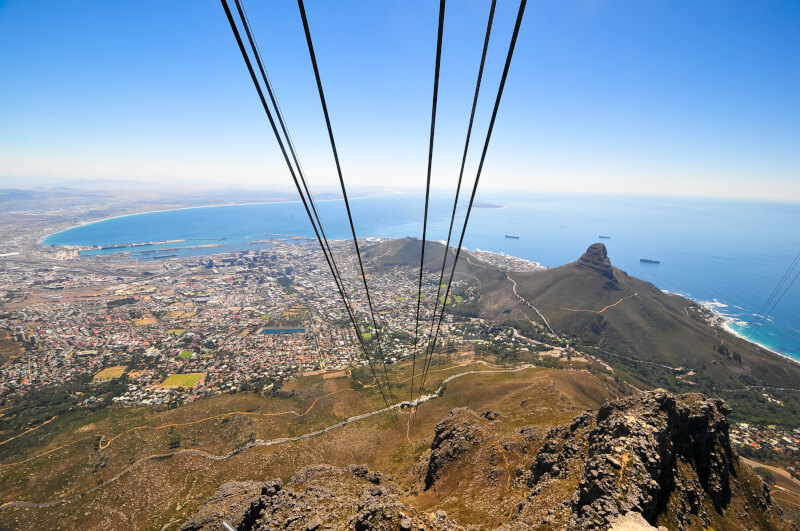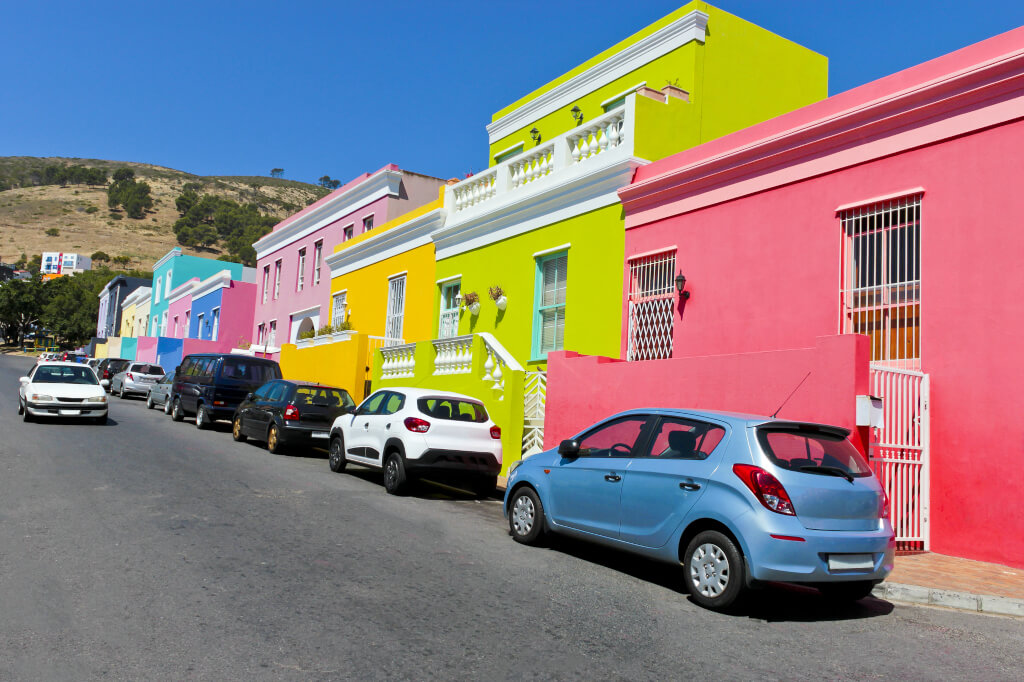Cape Town, with its beautiful scenery, diverse cultural community, and accommodating government, is a hidden gem for the film and television business. However, a well-written script and a stellar actor aren’t enough to create the stage for the ideal shot. Production budgeting is an essential but frequently overlooked part of any show’s success.
The Success of Any Production, No Matter Its Size, Hinges on an Accurate Budget
It keeps things operating smoothly and keeps costs down by minimising wasteful duplication of effort. While most production budgets cover predictable expenses like crew salaries, equipment hire, location fees, and catering, filming in a dynamic city like Cape Town can add a number of unexpected charges. If you haven’t factored them into your budget, these expenses have the potential to throw off your financial stability.
This article is meant to assist you deal with these kinds of costs, with a focus on those that may occur in Cape Town, a city that is often chosen for international projects. We’ll go into the depths of these potential budget surprises, from location-specific expenses and cultural concerns to unforeseen logistical obstacles and emergency contingencies. We will not only examine these expenditures, but also provide helpful advice on how to foresee and account for them in your budget, removing any potential financial roadblocks from your production.
Learning About Production’s Foundational Expenses
In order to provide context for the discussion of unforeseen costs, let’s examine the more routine manufacturing costs first. Above-the-line costs are those that are visible to the customer while below-the-line costs are those that are hidden from view.
Compensation for creatives such as the screenwriter, producer, director, and lead actors is a common example of “above the line” expenses. They are in charge of the project’s artistic strategy and big-picture goals. Their salaries are a major component of most production budgets. Below-the-line costs are everything else that goes into making a film and tend to be more fluid. Among these are:
Crew Compensation
All of the crew members who work behind the scenes should be compensated, from the cameramen and sound engineers to the makeup artists and set designers. These prices can have a somewhat large range depending on the scope of the production.
Equipment
Cameras, lights, microphones, and even set pieces are all considered equipment. Renting or purchasing this gear can eat up a sizable chunk of a production’s budget. Drones and underwater cameras are examples of specialised equipment that can drastically raise production costs.
Location Fees
The fees paid to a third party in exchange for the privilege of filming on their property are known as location fees. The location costs can add up quickly in a city like Cape Town, with its beautiful beaches and breathtaking surroundings. This also contains any necessary permits for a public area.
Craft
Cast and crew members need to be fed regularly while filming, therefore catering services are an essential aspect of any production. This can range from three square meals to a series of snacks and drinks spread out throughout the course of the day. Larger productions, especially, may find these expenditures adding up quickly.
Insurance
Having production insurance in place is crucial in case of any mishaps or accidents that may occur while filming. From broken props to on-set accidents, insurance can protect against it all.
The first step in responsible financial management is gaining an appreciation for these expenditures. Unexpected costs, however, should not be overlooked, and we will discuss some of these in the next sections.
Unanticipated Production Expenses

Unanticipated expenses can derail even the most well-organized manufacturing plans. These costs can originate from any number of unanticipated sources but are rarely factored into the initial budget. Despite being difficult to plan for, these expenses have the potential to have a major impact on the production budget as a whole if not handled properly. Unpredicted expenses can take numerous forms, some of which are listed below.
Delays
Things like inclement weather, broken machinery, absent performers, and difficult permission processes can all cause production delays. Crew pay, rental expenditures for tools and sets, and site fees all rise with every day of postponement.
When a production goes past its allotted time, either in terms of total days or number of shooting hours each day, this is known as an overage. Because of this, you may have to pay the team extra, hire more equipment, or pay for the use of the place for longer than originally planned.
Loss or Damage to Production Equipment
Accidents can happen, even when every effort is taken to prevent it. Costs for repairs or replacements, especially if the equipment in question is expensive, could rise as a result.
Insurance and Legal Fees
Although insurance is a necessary production expense, additional, unexpected expenditures may be incurred as a result of lawsuits, claims, or the necessity for more expensive legal or insurance representation.
Production teams might benefit from anticipating the possibility of unexpected costs by creating budgets and plans to account for them.
Cape Town Specific Expenses

Cape Town is frequently used as a filming location due to its beautiful scenery (including its beaches, mountains, and metropolitan areas). But local circumstances and restrictions, as with any specific region, might add up to a plethora of hidden expenses.
Costs Caused by Adverse Weather
Conditions in Cape Town are notoriously changeable. Rapid shifts in wind and temperature mean a day in the city can feel like all four seasons. As a result, unexpected delays in production may occur, and sometimes extra gear is needed to counteract the elements. For instance, the unpredictable “Cape” winds of Cape Town can put a stop to a shooting day or damage equipment.
Fees for Permits
The city has strict rules for shooting in public and private areas. There may be additional fees or restrictions while filming in well-known sites. Shooting in Cape Town’s busy downtown, for instance, may need navigating red tape and paying additional expenses.
Transportation
The mountainous and coastal terrain of Cape Town can make for difficult logistics, driving up transportation expenses. For example, getting bulky filming equipment to more secluded beach sites can take longer and cost more than expected.
Environmental Regulations
Compliance with environmental regulations Cape Town is home to a wide variety of plant and animal life. To ensure minimal harm to these ecosystems, filming in environmentally sensitive places may incur higher compliance fees. The production may employ environmental experts, develop waste management strategies, or take other measures to limit negative effects on the environment.
Public Events
The schedule and budget may also be affected by regional practises and occurrences. Many festivals and other public events take place in the city throughout the year, which may necessitate rearranging filming dates, closing roads, or finding alternative shooting locations.
Logistics
Film and TV productions are drawn to Cape Town in part because of the city’s stunning natural scenery, which includes both expansive coasts and high mountains. These same characteristics, however, can cause unusual shipping and logistics problems, which may end up costing more than intended.
The Topography
Cape Town’s varied topography can make getting around the city difficult. Some beaches and mountainous regions are so far from urban centres that getting there may take longer or need a more expensive mode of transportation, driving up the price.
Closures and Alterations to Traffic Flow
Cape Town, like any large city, experiences traffic congestion, especially during rush hours. Moving people and gear around can take longer than expected, which may affect the production timeline. In addition, Cape Town has a plethora of annual festivals and events that might result in sudden road closures, forcing residents to make contingency arrangements for getting around town.
Cost of Shipping and Customs
Equipment or props shipped from abroad may incur additional customs fees and shipping costs. Inexperienced handling of South African customs procedures might result in delays and additional fees.
Parking
Getting a parking spot can be difficult as well, especially in the heart of town or at a tourist hotspot. Larger vehicles, such as equipment vans, may require you to pay for parking fees or secure permits.
Ways to Prepare Your Budget for Unexpected Expenses

Production costs are notoriously difficult to estimate, but there are ways to better plan for the unexpected.
Preparing a Savings Reserve
A contingency fund is a good approach to prepare a budget for unforeseen expenses. A rainy-day fund is the portion of your budget set aside in anticipation of costs that were not anticipated. It’s a safety net that also gives you more leeway in the studio.
Purchasing All-Inclusive Coverage
The purchase of all-encompassing insurance to protect against the loss of, or damage to, equipment, last-minute cancellations due to bad weather or illness, and liability claims is another smart move. Read your policy’s fine print so you know exactly what is and isn’t covered.
Extensive Research and Preparation
In the pre-production phase, you should focus on research and planning. Knowing your locations, hazards, and local legislation can help you better predict and prepare for unexpected expenses.
Contractual Discussions
Always work to include clauses in contracts that provide you some wiggle room in the event of unforeseen circumstances. Some examples of this would be the availability of additional shooting days at the site, more favourable rental terms for necessary equipment, or time-and-a-half pay for working crew members.
Cooperating with Local Production Companies
In order to keep costs down, it can be helpful to work with a local production company like YLO Productions that is familiar with the Cape Town location and the ins and outs of filming there. They can aid in understanding and complying with local rules and regulations, gaining access to relevant local resources, and avoiding traps that could result in unforeseen expenditures. For instance, YLO Productions provides a wide variety of services, one of which is complete budget preparation. From the brainstorming phase all the way to the end, they’ll be there to help you prepare for any and all charges.
Incorporating these tactics into your financial planning will help you anticipate and deal with unforeseen expenses, allowing you to run your business more smoothly and efficiently.
Budgeting and financial management are crucial to the success of any film shoot, but especially so in a city as culturally and geographically varied as Cape Town. Budgeting for known, set expenses like crew pay, equipment rental, and location fees is essential, but so is planning for and allocating funds for any unforeseen costs that may arise. These may result from anything from location-specific costs and cultural norms to transportation issues and last-minute emergencies.
You can get through unexpected challenges without having a major impact on output if you build in some wiggle room and some backup plans. Managing unpredictable expenses can be greatly aided by investing in comprehensive insurance, establishing flexible contracts, and collaborating with local production companies like YLO Productions.The ability to create and adapt is at the heart of any successful film production, and this flexibility can only be achieved by planning for the possibility of unexpected costs. A well-prepared budget is a tool that enables you to bring your creative vision to life, whether you’re filming in the colourful cityscape of Cape Town or anyplace else in the world.
